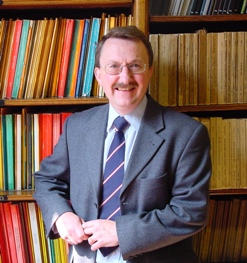
Should the Geological Society apply to the Society for the Environment as a Member Body? As the Professional Committee ponders the issue David Shilston* outlines the debate and asks Fellows to express their interest via this website.
Geoscientist 18.3 March 2008
What is SocEnv?
The Society for the Environment (SocEnv) is an umbrella organisation for environmental organisations and individuals, founded in 2002 and granted a Royal Charter in 2004. It has 17 Member Bodies, including the Chartered Institution of Water and Environmental Management (CIWEM), the Institution of Civil Engineers (ICE) and The Institute of Environmental Management and Assessment (IEMA). Member Bodies are licensed to accredit their individual members with the qualification of Chartered Environmentalist (CEnv) and there are now over 4500 Chartered Environmentalists.
Were the Geological Society to become a Member Body, it would be likely that, for one year following the grant of the license, Chartered Geologists (CGeols) would be eligible to apply for CEnv through a streamlined assessment procedure. Non-chartered geologists and CGeols after the ‘grand-parenting’ route had closed, would have to follow an application procedure similar to that for CGeol - comprising an application form, written report and professional interview. As with Chartered Geologist, CEnv applicants must demonstrate that they meet requirements for education, experience and competencies and undertake Continuing Professional Development.
So why bother?
First, it is possible that the Geological Society might lose members to SocEnv Member Bodies if gaining CEnv becomes important for practitioners in environmental geology and related topics. As the professional body for geoscientists, should the Geological Society offer all professional qualifications that might be of value to its Fellows?
The second reason can be summed up by the Society for the Environment’s mission statement: The Society aspires to be the leading and co-ordinating professional body in environmental matters and a pre-eminent champion of a sustainable environment. The Society will achieve this by nurturing and harnessing the combined resources, knowledge, expertise and achievements of the professional and learned bodies which are its Members.
SocEnv is not just about giving people more letters after their name, but an organisation that facilitates better communication between its Member Bodies, which cover fields as diverse as engineering, meteorology, soil science and fisheries management. SocEnv forms a network within which each Member Body may learn from others through joint meetings, forums and debates. The Geological Society can either join in and add to the debate or choose to have no say in the development of this potentially influential new Society.
But…
Many people belong to multiple institutions already and, as a relatively new qualification, it is not yet clear what standing CEnv has within the environmental professions at present. There would be nothing to prevent our joining SocEnv in the future, should CEnv appear to be becoming more useful and necessary for environmental professionals.
The Geological Society already offers the designations Chartered Geologist and Chartered Scientist. Together, these qualifications offer our Fellows the opportunity to gain professional recognition in a huge variety of career paths. Do Fellows need CEnv in addition or in preference to these existing qualifications? Would offering CEnv potentially dilute the strength of CGeol?
There is a joining fee, and an annual fee for both Member Bodies and Chartered Environmentalists. We would also incur costs in administering the CEnv qualification. As such, it seems sensible to try to find out how much support there is from Fellows for this designation first.
The Professional Committee has set up an online ballot, to find out how interested Fellows are in the CEnv title. To register your vote, go to
www.geolsoc.org.uk/cenv_ballot and follow the instructions. Further developments will be reported in Geoscientist.
- Closing date for votes: 31 March 2008